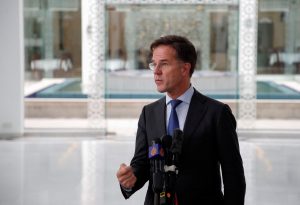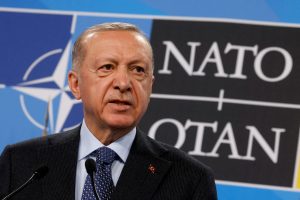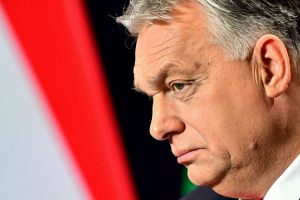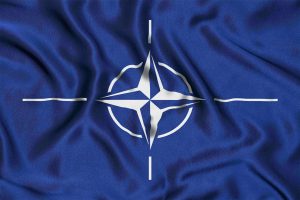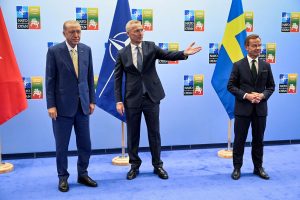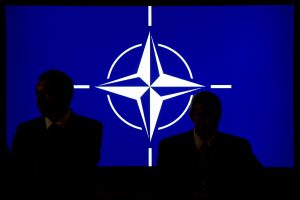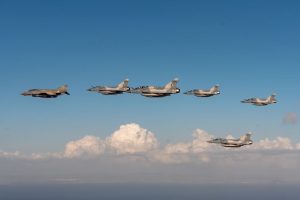The Dutch Prime Minister Mark Rutte has a rival in the race for the top spot at NATO following the announcement of Romanian President Klaus Iohannis’ candidacy for the post. After Charles Michel changed his mind about running for the European Parliament and Ursula von der Leyen announcing that she will be seeking a second term as Commission President, Iohannis is looking for another open door in Brussels. That said, he can’t be confident that the position of Secretary General of the North Atlantic Alliance will be his, with Mark Rutte considered a “shoo-in” for now, with the final round of negotiations ongoing in the run-up to the final decisions.
Still, Bucharest could claim other positions within the Alliance. With Romanian Deputy Secretary General Mircea Geoană’s term ending, and the politician departing the post with his sights set on the presidential spot in his own country—he is currently leading in the polls—, the cards are about to be dealt out anew.
Of course, it’s not over till the fat lady sings. Hungary favors Iohannis for the role, as does the Alliance’s eastern flank. As for Turkey, the endless horse trading won’t end until Ankara decides which candidate to back, despite the country’s otherwise exceptionally cordial relations with the Netherlands.
It has to be said that Mark Rutte carried himself more like a winner than an outgoing Prime Minister at the Munich Conference, where he didn’t pull his punches when answering a question about Ukraine’s accession to the North Atlantic Alliance.
“As long as the war is ongoing, Ukraine cannot become a member of NATO. That’s the bad news. The good news is that we can learn from the EU. In the EU, there are steps,” clarified Mark Rutte, who has the blessing of most of the Alliance, including the US, Germany, France and Greece.
“I don’t think it’s a secret, though, that we have heard Prime Minister Rutte himself say he has expressed an interest. So that’s one person the Alliance is looking at. But it is an ongoing process,” US Ambassador to NATO Julianne Smith said when put on the spot by journalists before the February 15th Defense Ministers’ Meeting, noting that the goal is for the process to have reached a conclusion in the first quarter of the year, “probably”.
Turkey, which is one of the few countries that has yet to come down one way or the other, could ask for and possibly be given a good post in NATO in exchange for greenlighting Rutte’s election. The position of Deputy Assistant Secretary General for Operations is currently held by a Turk, Burcu San, but Ankara has more cards up its sleeve. It could ask for its positions, which are not always compatible with Greek interests, to be treated favorably and included in NATO texts, and we can certainly expect Ankara to request that its positions be taken more into account in NATO’s relations with the EU. In this case, Turkey’s focus will be firmly on PESCO (Permanent Structured Cooperation in the fields of defense and security) and specifically on the Military Mobility program. The program is coordinated by the Netherlands (one of the countries that already go out of their way to ensure that Turkish “sensibilities” are catered to in the EU and NATO), while Norway, the United States, Britain and Canada are also involved.
However, in this case, Ankara has run up against safeguards put in place when PESCO was set up–specifically, the fundamental conditions that, for a country to participate in a program, their participation must not run counter to the interests of EU Member States, and that the nation must both respect EU principles and values and have signed a security agreement with the EU governing the exchange of classified information.
NATO and the EU have upgraded their collaboration in the light of the geopolitical changes of recent years. The NATO-EU Joint Statement of January 2023 stresses “promoting close consultation and cooperation with all NATO Allies and EU Member States”, but also encourages the fullest possible participation of non-EU NATO Allies in EU initiatives.
